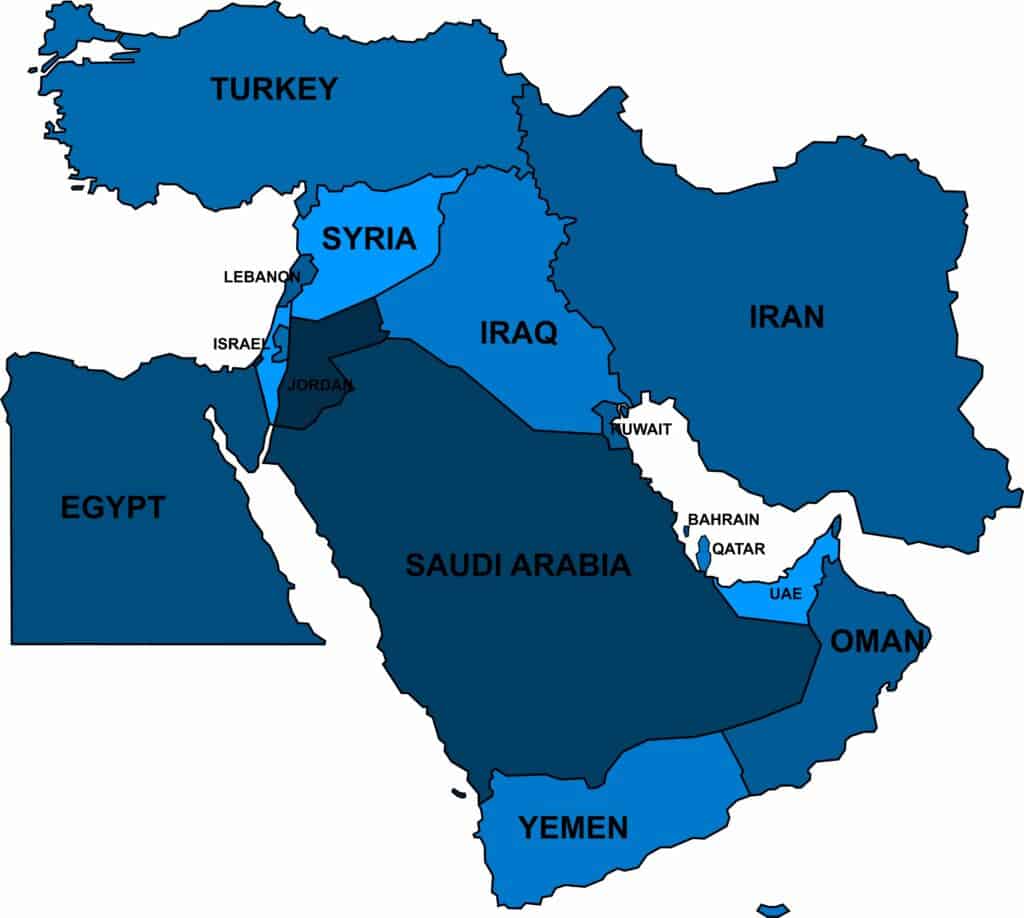Over the weekend, the conflict in the Middle East reached a dangerously higher level. Iran launched an estimated 300 drones, ballistic and cruise missiles targeting Israel. This was in retaliation for Israel’s bombing of the Iranian consulate in Syria on April 1. Reports indicate that 99% of the missiles were intercepted and destroyed, limiting the impact to one critically wounded young person and minor damage at an Israeli air force base.
Despite the lack of major damage so far, this attack is significant in that it greatly increases geopolitical risk. This marks the first time Iran has chosen to attack Israel directly from its territory instead of relying solely on proxies in northern Lebanon (the Hezbollah) and in Yemen (the Houthis).
At this time, the markets seem to be hoping Israel’s counter-response will be limited, and there are reasons to believe that will be the case. Iran evidently forewarned of its attack, allowing Israel and its allies enough time to pre-position and intercept missiles. President Biden then reportedly advised Israel to “take the win.”
However, firing on a country’s sovereign territory is unacceptable, and Israel is unlikely to do nothing; most likely it will continue to go after Iranian proxies and/or engage in cyberattacks. And there is still the risk of a direct attack on Iran or on its military leaders. Additionally, a resolution with Hamas now seems further off, with the guardrails on the Israel-Hamas war further eroded, increasing the risk of a broader conflict.
Implications
In the past year, we have written extensively about heightened geopolitical risks in a multi-polar world characterized by shifts in global trade and the potential for higher inflation and interest rates. So far, the capital markets have not priced in an escalation in geopolitical risk. That might now start to change.
Further signs of escalation in the Mideast conflict (or elsewhere) could disrupt oil markets and supply chains, potentially triggering a subsequent wave of inflation in the U.S. Any signs of resurging inflation could cause the Federal Reserve to raise interest rates further, jeopardizing economic growth. U.S. equity markets would likely be negatively impacted, while U.S. Treasuries and investment-grade debt should benefit from a flight to quality.
The risk posed by an exogenous event that tips market psychology from risk-on to risk-off is one of the many reasons we emphasize strategic diversification and disciplined, regular rebalancing within LNW client portfolios. Our allocation to diversifiers, such as private debt and hedge funds, should also benefit in an environment with higher volatility.
Actions and reactions in the coming days will determine how events play out. There is still the horrendous possibility of escalation leading to an all-out regional war. Iran’s regime is unstable which means directing its people’s attention to an external conflict may be in their best interests and aligned with their broader goal to isolate Israel and make it unlivable. Israel (with the potential support of the U.S.) may want to use this opportunity to destroy Iran’s nuclear weaponization efforts.
As events unfold, we will continue to keep clients apprised. Our Q2 2024 Economic Commentary will be sent out this Thursday. In the meantime, while unlikely, we continue to hope that a peaceful resolution is on the horizon.



